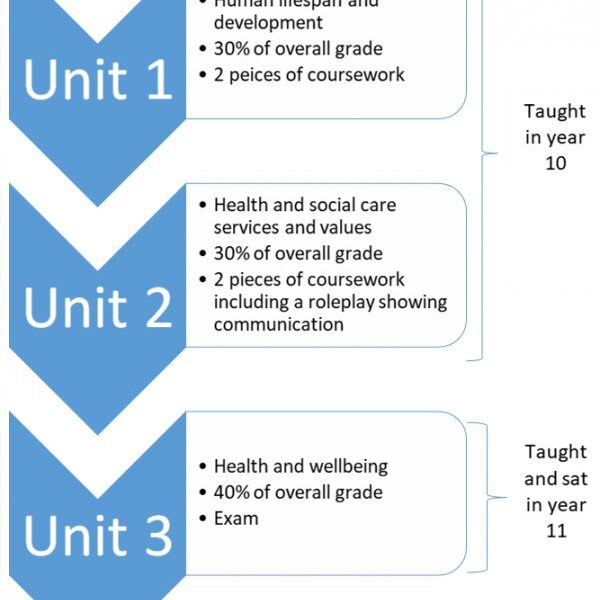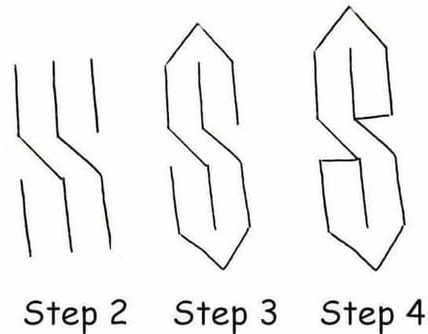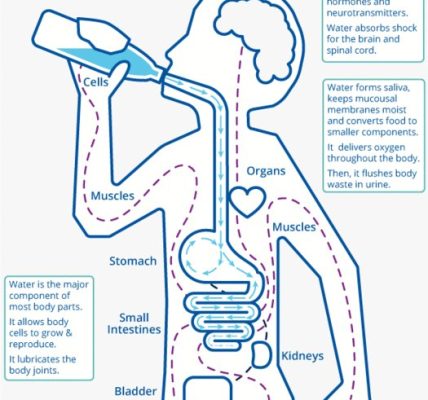Are you curious about pursuing a career in health and social care? A Health and Social Care GCSE can open doors to various fulfilling roles in this vital sector. This qualification not only equips you with essential knowledge but also enhances your skills in understanding people’s needs.
As you dive into the curriculum, you’ll explore topics like communication, well-being, and the importance of compassion in care. Whether you aim for further education or immediate employment, this GCSE acts as a strong foundation in a rewarding field. Your future in health and social care starts here!
Health and Social Care GCSE
Health and Social Care GCSE is an exciting and essential subject that prepares students for a variety of careers in healthcare and social services. It introduces learners to the world of health and social care, helping them understand the importance of supporting individuals in their health journeys. In this article, we will explore the various aspects of the Health and Social Care GCSE, including what the course entails, key topics covered, assessment methods, and career opportunities.
Understanding Health and Social Care GCSE
Health and Social Care is a subject that combines elements of biology, psychology, and sociology. It focuses on understanding how individuals develop and grow within society, the various needs they have, and how to meet those needs effectively. Both health and social care play pivotal roles in improving lives, which is why this course is so vital.
Course Structure
The Health and Social Care GCSE typically includes both theoretical knowledge and practical skills. Here’s a breakdown of what students can expect:
- Theory: Understanding health issues, social services, and the legal and ethical frameworks that govern health care.
- Practical Application: Students often partake in projects or volunteer opportunities to apply what they learn in real-world settings.
- Research Projects: Conducting research on various health topics helps students gain valuable insights and experience.
Key Topics Covered in Health and Social Care GCSE
The curriculum for Health and Social Care GCSE is designed to be comprehensive, covering a range of topics that are essential for a solid understanding of the field. Some of the key topics include:
Understanding Human Development
– **Life Stages**: Students learn about the different stages of human life, including infancy, childhood, adolescence, adulthood, and old age. Understanding these stages helps students appreciate how health needs change over time.
– **Physical Development**: This includes growth patterns, health issues related to physical development, and the importance of nutrition and exercise.
– **Social and Emotional Development**: Students study how relationships, family, and social contexts influence emotional well-being.
Health and Well-Being
– **Physical Health**: This covers nutrition, exercise, mental health, and common illnesses.
– **Mental Health**: Awareness of mental health issues is vital. Students explore topics such as stress, anxiety, and the importance of mental health support.
– **Health Care Services**: Understanding different health care professions and services available to the public, including hospitals, clinics, and community health services.
Social Care in Society
– **Social Services**: This includes examining the roles of various social services, such as child protection, elderly care, and community support services.
– **Legislation and Policy**: Students learn about laws that protect individuals and regulate health and social care, such as the Care Act and the Equality Act.
– **Ethical Considerations**: Discussions around ethical dilemmas in health and social care are crucial, as they prepare students for real-world challenges.
Assessment Methods in Health and Social Care GCSE
Assessment in the Health and Social Care GCSE usually combines coursework and examinations, allowing students to demonstrate their understanding through various formats.
Coursework
Coursework typically involves assignments that require students to research specific topics, conduct interviews, or present case studies. This approach not only assesses a student’s understanding but also their ability to apply knowledge in practical scenarios.
Examinations
Students take written exams at the end of the course, which assess their knowledge and understanding of the key principles in health and social care. These exams include multiple-choice questions, short answers, and essays.
Skills Developed Through Health and Social Care GCSE
Taking Health and Social Care GCSE helps students develop a range of valuable skills, such as:
- Communication Skills: Effective communication is crucial in health and social care, as it involves interacting with individuals and teams.
- Critical Thinking: Analyzing information and making informed decisions are key skills that students develop.
- Teamwork: Students learn the importance of working together to achieve common goals, a vital aspect of any health or social care role.
- Empathy: Understanding and sympathizing with others’ experiences is fundamental in providing effective care.
Career Opportunities in Health and Social Care
A GCSE in Health and Social Care opens up numerous pathways for students. Here are some potential career opportunities in this field:
Health Care Professions
– **Nursing**: Registered Nurses provide care to patients in various settings, from hospitals to community health.
– **Midwifery**: Midwives specialize in caring for women during pregnancy, childbirth, and postpartum.
– **Physiotherapy**: Physiotherapists help patients recover from injury and improve their physical functioning.
Social Care Roles
– **Social Worker**: Social workers support individuals and families through challenges, providing assistance and advocacy.
– **Care Assistant**: Care assistants work in residential settings, helping individuals with daily activities and personal care.
– **Child Protection Officer**: These professionals ensure the safety and well-being of children at risk.
Further Education and Training
Students can choose to continue their education by pursuing A-levels in related subjects like psychology, biology, or sociology. Additionally, vocational qualifications and apprenticeships in health and social care can provide more specialized training.
Importance of Continuing Education
Success in the health and social care field often requires continuous learning. Professionals should stay updated on the latest developments, policies, and practices. Many organizations offer workshops, seminars, and courses for professional development.
Health and Social Care GCSE is more than just a school subject; it is a gateway to understanding the essential services that support and improve people’s lives. By exploring human development, health, and social care needs, students gain a foundation that prepares them for various career paths in this rewarding field. The skills and knowledge acquired during this course can significantly impact individuals and communities, making the importance of this subject clear.
In conclusion, if you’re considering taking Health and Social Care GCSE, or if you’re a parent or educator exploring options for students, recognize the value that this course provides in shaping compassionate and competent professionals who can make a real difference in society. Embrace this opportunity for growth and learning in the vital fields of health and social care.
Unit 1: Human lifespan development – Life stages & P.I.E.S (Health & social care BTEC Level 3) 🥧🥧
Frequently Asked Questions
“`html
What topics are covered in the Health and Social Care GCSE curriculum?
The Health and Social Care GCSE curriculum includes a variety of topics related to health, social care, and wellbeing. Students typically study human development, health and social care needs, the effects of life events, the roles and responsibilities of care workers, and the principles of care. Additionally, they explore factors that influence health and wellbeing, such as lifestyle, environment, and social circumstances. Understanding the importance of communication in care settings forms a crucial part of the coursework as well.
How is the Health and Social Care GCSE assessed?
Assessment for the Health and Social Care GCSE usually consists of a combination of coursework and examinations. Students may complete controlled assessments that evaluate their understanding and application of practical skills in health and social care scenarios. Final exams often test theoretical knowledge gained throughout the course. The specific assessment format may vary by examination board, so it’s important for students to check the requirements for their particular syllabus.
What skills can students develop through the Health and Social Care GCSE?
Students can develop a range of valuable skills through the Health and Social Care GCSE. These include communication and interpersonal skills, critical thinking, problem-solving, and the ability to work effectively in teams. The course also emphasizes empathy and understanding towards individuals with varying needs, which is essential in health and social care roles. Moreover, students learn to analyze information related to health and wellbeing, preparing them for future studies or careers in this field.
What career opportunities are available after completing the Health and Social Care GCSE?
Completing the Health and Social Care GCSE opens up various career paths in the health and social care sectors. Students may pursue further education in health and social care, nursing, social work, or other related fields. Additionally, students can seek entry-level positions in care settings, such as care assistants, support workers, or community health workers. The knowledge and skills gained from the GCSE can serve as a strong foundation for a rewarding career in helping others.
Can students pursue further studies after completing the Health and Social Care GCSE?
Yes, students can pursue further studies after completing the Health and Social Care GCSE. Many students go on to take A-levels or vocational qualifications in health and social care, psychology, or related subjects. Some may choose to enroll in diploma courses that specialize in specific areas like nursing or social work. The GCSE provides a solid grounding that supports further education and training in various health and social care professions.
“`
Final Thoughts
The health and social care GCSE equips students with valuable skills and knowledge essential for various careers in healthcare and social services. This qualification enhances understanding of human development, health needs, and the importance of effective communication.
Students learn to apply this knowledge practically, preparing them for further education or employment in these vital sectors. Understanding the dynamics of health and social care GCSE not only opens career paths but also fosters a compassionate outlook towards individuals in need.





